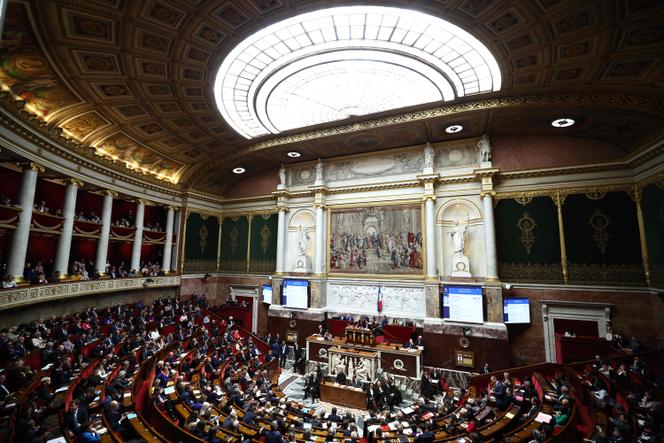End of life: MPs approve key article creating right to assisted dying


On Saturday, May 17, MPs approved the creation of a "right to assisted death" and reinstated the principle that patients must self-administer the lethal substance, except when they are unable to do so, during the examination of Olivier Falorni's bill. The article creating this right was adopted by 75 votes to 41. A vote on the entire text relating to "the right to assisted death" is scheduled for May 27.
The House returned to the version adopted in committee in mid-April, which granted those wishing to resort to assisted dying the freedom to choose between self-administration of the lethal product and administration by a doctor or nurse. On Saturday, MPs adopted a government amendment specifying that this would only be possible when the patient "is not physically able to do so" , returning to the initial version.
"The government's position is to say that the principle is self-administration, the exception is support," declared the Minister of Health, Catherine Vautrin, in the chamber.
For several MPs, this was "a breaking point in the balance of the text" , in the words of Horizons MP and former Minister of Health, Agnès Firmin Le Bodo, who argued for the need to "listen to caregivers in the construction of this text" .
Conversely, the author and rapporteur of the text, Olivier Falorni, expressed his "disagreement" with the questioning of "free choice" , recalling that this was one of the "crucial points" for the Citizens' Convention which had been set up by the President of the Republic to reflect on the subject.
What "I fear," explained Mr. Falorni, "is that a patient who has said 'yes doctor, I want it, I persist, I maintain, I want assistance in dying' may not ultimately be able to do so for various reasons," such as "anxiety" or " stress. "
“Right” versus “freedom”For Catherine Vautrin, self-administration translates into action up until the last moment the patient's "will" to die. But perhaps "indeed, the case of the patient who said yes, I self-administer, but who, at the moment of drinking the product, for example, or injecting it, is not capable, perhaps requires support at that moment," she suggested.
An amendment to allow a "close relative" to administer the lethal product was rejected, as was another seeking to open up the possibility of assisted dying, taking into account advance directives.
In the morning, MPs debated the definition of assisted dying and its semantics, with some opponents attempting, unsuccessfully, to replace it with the concepts of "assisted suicide" and "euthanasia ." Others sought to challenge the notion of a "right" to assisted dying, believing that "a right" was going too far and preferring the simple "freedom" that offers a possibility.
The right experienced the same setbacks when it tried to clarify the concept of "active" assistance in dying. "Assisted dying already exists. And all doctors and nurses provide assistance in dying. We help people die without causing death," worried Philippe Juvin (Les Républicains). "Administering a lethal substance, how can that be assistance? It will always be administering death," fumed Christophe Bentz (Rassemblement National).
Crossing political divides, the bill on assisted dying is expected to continue to be fiercely debated, particularly regarding access criteria. Some 1,839 amendments remain to be considered.
The World with AFP
Contribute
Reuse this content



